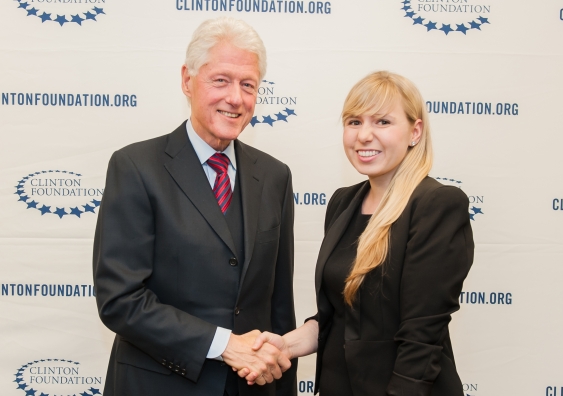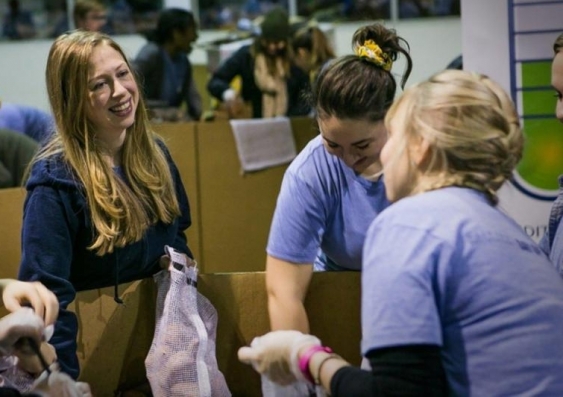Packing food for disadvantaged families at three o'clock on a chilly winter morning with Chelsea Clinton, daughter of President Bill Clinton, gave UNSW Masters student Rachel Wilkins a practical perspective of initiatives supported by the Clinton family.
Rachel took part in the food rescue ‘repackathon’ while in New York for an internship with The Clinton Foundation, a philanthropic organisation that aims to make a difference in areas such as health and wellness, economic development, climate change and opportunities for women and girls.
“My internship with the Clinton Foundation really opened my eyes to a broader range of tools to help the disadvantaged,” Rachel says.

Rachel Wilkins with President Bill Clinton. Photo: Clinton Foundation
Rachel is currently studying a Master of International Public Health at UNSW and seized the opportunity to take up an internship over summer to learn more about implementing public health programs.
She was placed in the Clinton Health Matters Initiative, an area of the Foundation focused on reducing the prevalence of chronic disease in the US as well as closing the gap in health disparities.
“I worked specifically in the areas of health, technology and digital innovation, on compelling ways to leverage the power of technology to improve health in the US,” Rachel says.
Her main project was a ‘codethon’ event to encourage female developers to design and build digital applications to support women’s mental health.
“The combination of health and technology was not really an area I had thought about before the internship. There is tremendous potential with mobile technologies, as well as the rapidly expanding wearable device market, to improve health outcomes,” she says.
Rachel initially trained as a registered nurse and says she was inspired to study public health after volunteering in Cambodia and Tanzania.
“I realised that the problems were not just clinical. There were also significant structural problems that contribute to poor health in developing countries,” she says.
Rachel says she would eventually like to work for an international organisation such as the WHO or the World Bank, but is also keen to keep up her clinical skills and experience.
She also encourages other Masters students to use their studies as a “springboard” to practical work experience and the opportunity to gain a wider perspective of their studies.



